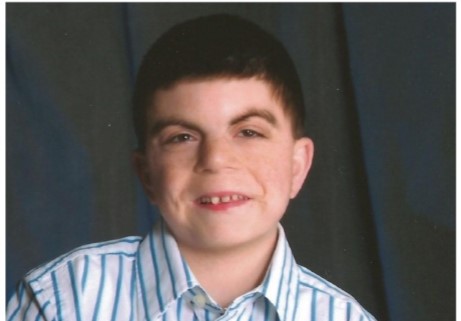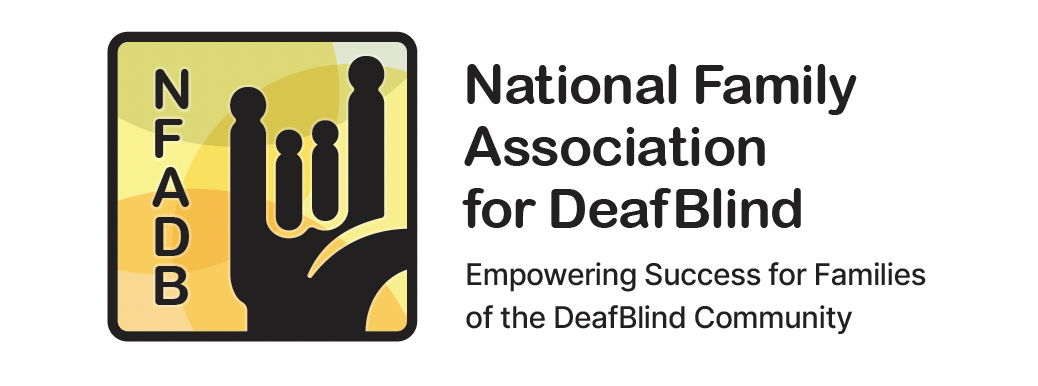- Welcome
- FE: Alex Black
FAMILY experience: MEET ALEX BLACK
Spring 2019

My son, Alex, was born in 1991. He loved music, swimming, hanging out with his family—especially his sisters—reading books, and looking at photos. He also enjoyed spending time alone in his man cave.
Alex was an individual with complex support and healthcare needs due to the etiology of Cornelia de Lange Syndrome. He required 1:1 support to complete tasks associated with work, recreation, hygiene, socialization, and safety. Meeting his needs and interests, and our family vision for his adult life required a great deal of planning. Supports as a young adult also required funding. We were fortunate that he had partial Medicaid Waiver funding throughout his high school years and full funding through developmental disabilities systems at age 21, in addition to Supplemental Security Income (SSI).
Once Alex exited the school system, his entitlement to services and supports went away. This is the case for all students with disabilities because adult services are based on eligibility AND availability of services. Pennsylvania, where we live, has a long waiting list for adult services. They are not easily obtained without advocacy and emergency level of need for individuals with intellectual and developmental disabilities. I will be completely honest and frank—without funding, his transition would not have been as successful as it was and would not have met all of his needs and interests.
Natural supports for complex individuals do not come easily. Often, those with high healthcare needs and lower communication skills only have paid supports. As Alex was growing, we always asked ourselves, “If he didn’t have a disability, where would he be learning, playing, socializing, and possibly working?” We used that to guide our decisions for and with him. Throughout his high school years, we used many person-centered tools such as person-centered planning, PATH, and several vocational assessments, including the process of Discovery. Discovery allowed us to see his strengths and abilities and envision ways he could contribute to his community through work. As parents, we think we know so much about our children, but we still might learn something new through this process.
Planning took A LOT of effort on our part and a great commitment from our school district. Alex’s school funded vocational assessments and the process of Discovery and the resulting Vocational Profile. We formed a team around Alex and allowed him and his interests to be the focus. We created an individualized program for him, and it happened in the community.
Adult agencies were also included in planning for Alex’s future, including Developmental Disabilities, Vocational Rehabilitation, and the Bureau of Blind and Vision Services. Unfortunately, this was before WIOA—the Workforce Innovation and Opportunity Act. Vocational Rehabilitation did not deem Alex able to benefit from their services and closed his case.
It was important to have a plan in place long before high school ended. Early planning was the key. In Pennsylvania, transition planning begins at age 14. Alex’s planning included exploring vocational pursuits at school and in the community, developing volunteer opportunities, expanding recreational activities, and making community connections. The goal was to have a plan for what his day would look like after he exited high school. Waiting to plan until age 19, 20, or 21 is far too late.
Alex was included in general education classes and his curriculum included a focus on life and vocational skills to prepare him for post-school success. An extra year of high school, after he walked at commencement, involved spending half of each day at school and half in the community securing vocational opportunities. It was important to us that these be individualized for Alex, rather than part of group experiences.
A t school, Alex had a paraprofessional in the role of the intervener. Once she also became an employee of the agency that administered his waiver, we were able to use habilitation aid funding to cover community support even though it was during school hours. I would be remiss if I did not give this individual credit where credit is due. She transitioned with Alex and became a hybrid of habilitation aide, intervener, support service provider, interpreter, facilitator, and transporter, depending on what was required at any given moment. Most of all she was trained and she respected our family values.
Alex had numerous vocational experiences that helped him learn valuable skills and have rich, meaningful interactions in the community.
- He folded towels (with help) in his consumer science class, not because he liked folding towels, but because it was a good life skill and other students were doing it too. We took that to his local YMCA in the community, where he had support folding towels as a work experience. After finishing his tasks, and with his own membership, he would swim and use the hot tub. We learned about a great outcome of this experience when our family went to a local restaurant where the host greeted and interacted with Alex. He told us he had shared time in the hot tub with Alex at the YMCA. Unknown to us, Alex had made a friend outside of our family and school circle.
- His vocational experiences were mostly volunteer, with the hope of working toward paid employment. Would that have ever happened? We will never know, but I’d like to think it could have. For example, when Alex was in high school, he delivered supplies to teachers and items to the front office using a rolling cart. We generalized this activity to a local nursing home where, with 1:1 support, he delivered magazines and mail on a similar rolling cart and collected trash from the residents’ rooms. He was truly included in the nursing home’s volunteer program and invited to their appreciation luncheons. They depended on him to show up and complete his work. We were informed that if he was able to work more hours, he could become a paid employee.
- He was a business owner. He received his first vending machine as a donation and we invested in a second one. He shopped for products, stocked the machine with hand-under-hand support from his intervener, and did the banking. He enjoyed operating the coin-counting machine. This created opportunities to communicate with people at our church where the vending machine was located, as well as the bank personnel who looked forward to seeing him. We were proud of his ability to donate the money he earned to his church, just like other members of the parish.
- He baked dog treats for a local groomer, which included shopping for ingredients and baking and packaging them. The owner provided natural supports to accommodate the work environment to meet Alex’s physical needs. A great benefit was interactions with the owner, customers, and dogs.
- He picked up shredded paper from a workshop and delivered it to a local farmer for animal bedding. The farmer appreciated these deliveries and took Alex for rides around the farm on his four-wheeler to visit the animals.
- He volunteered at the local public library, straightening bookshelves and pushing chairs back under tables. He got to know people in the community and look at books, which was one of his favorite pastimes.
Alex communicated with signs, gestures, and AAC, but was non-verbal. His vision and hearing loss affected his ability to function. He was fortunate to have mobility, but his stamina and attention were short lived. He had the ability to use his small hands, but his fine motor skills were limited. While his unique and creative life accomplishments may seem elusive for someone with his limitations, they were doable with planning and supports. He had interactive days full of interesting things to do and a reason to leave his house and his family each day.
Alex lived a rich, meaningful life for 22 years. He was a contributing member of his church and his community, a business owner, and a cherished family member. At the time of his death, he was about to embark on the next step of his adult journey, moving out of his family home to live with a roommate. There is perpetual sadness around our loss, but gratitude for the love, joy, and unique experiences Alex brought to our family.
It is a complicated life our children and young adults with deaf-blindness lead. The world is changing, as many individuals, parents, and advocates no longer consider day programs, sheltered workshops, or remaining at home as the only post-school options. Just like the push to include students with disabilities with their non-disabled peers in general education classrooms, we are seeing the same push to the community for the adult population.
My advice to other parents is to start planning early. Be an active part of your child’s IEP team. Connect with all potential funding and service providers as early as you can. Set high expectations for your child’s life and don’t be dissuaded by others who do not share your expectations.
Molly Black

